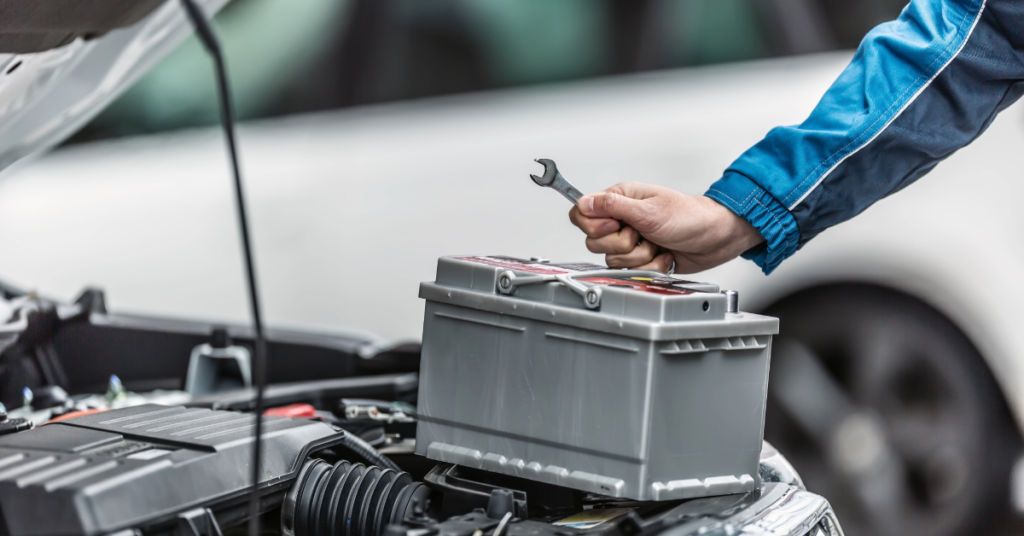LATEST_BLOGS
The Comprehensive Guide to Car Battery Stabilisers and Their Role in Enhancing Battery Performance and Longevity

Car batteries are the heartbeat of any vehicle, supplying the necessary power to start the engine, run electrical systems, and keep everything operational. However, factors like temperature fluctuations, excessive discharge, and vibration can take a toll on battery health, leading to premature failure and costly replacements. This is where car battery stabilisers come into play. In this comprehensive guide, we’ll delve into the world of car battery stabilisers, understanding their functionality, benefits, and how they contribute to enhancing battery performance and longevity.
Understanding Car Battery Stabilisers
Car battery stabilisers, also known as battery voltage stabilisers or battery conditioners, are electronic devices designed to regulate and maintain optimal voltage levels within the vehicle’s electrical system. They work by continuously monitoring the battery’s voltage and making adjustments as needed to ensure it remains within the specified range.
How Car Battery Stabilisers Work
Car battery stabilisers utilize advanced microprocessor technology to monitor voltage fluctuations and deliver a stable current to the battery. By maintaining a consistent voltage level, these devices help prevent overcharging, undercharging, and voltage spikes, which are common causes of battery degradation.
Benefits of Car Battery Stabilisers
- Enhanced Battery Performance: By stabilising voltage levels, car battery stabilisers help improve overall battery performance. This results in faster and more reliable starts, especially in cold weather conditions.
- Extended Battery Life: Regular voltage fluctuations can lead to accelerated wear and tear on the battery, reducing its lifespan. Car battery stabilisers mitigate this issue by ensuring the battery operates within optimal parameters, thus prolonging its longevity.
- Protection Against Electrical Damage: Voltage spikes and surges can damage sensitive electrical components within the vehicle’s electrical system. Car battery stabilisers act as a buffer against such fluctuations, safeguarding the entire system from potential harm.
- Increased Fuel Efficiency: A properly functioning battery leads to more efficient operation of the vehicle’s electrical systems, including the alternator. This, in turn, can contribute to improved fuel efficiency and reduced emissions.
- Convenience and Peace of Mind: With a car battery stabiliser installed, drivers can enjoy peace of mind knowing that their battery is being actively monitored and protected against voltage irregularities. This reduces the likelihood of unexpected breakdowns and costly repairs.
Types of Car Battery Stabilisers
- Voltage Regulators: These stabilisers regulate the output voltage from the alternator to ensure it remains within the desired range, preventing overcharging of the battery.
- Conditioning Chargers: Also known as smart chargers, these devices use advanced algorithms to analyze the battery’s condition and apply the appropriate charging profile to maximize its lifespan.
- Voltage Surge Protectors: These stabilisers protect the battery and electrical system from voltage spikes caused by events such as jump-starting or power surges.
- Battery Desulfators: Designed to dissolve sulfate buildup on the battery plates, these devices help restore lost capacity and improve overall battery health.
Choosing the Right Car Battery Stabiliser
Choosing the right car battery stabiliser is a critical decision that can significantly impact the performance and longevity of your vehicle’s battery. With a plethora of options available in the market, it’s essential to consider several factors to ensure you make an informed choice that aligns with your specific needs and requirements.
- Compatibility: The first consideration when choosing a car battery stabiliser is compatibility with your vehicle’s make and model. While most stabilisers are designed to work with a wide range of vehicles, it’s crucial to verify compatibility to avoid compatibility issues and ensure seamless integration with your vehicle’s electrical system.
- Voltage Regulation: Look for a stabiliser that offers comprehensive voltage regulation capabilities. The device should be able to maintain the battery’s voltage within the specified range, preventing both overcharging and undercharging, which can lead to premature battery failure. A stabiliser with adjustable voltage settings allows for fine-tuning to match your battery’s requirements accurately.
- Surge Protection: Voltage spikes and surges can occur due to various factors such as jump-starting, alternator malfunction, or power surges in the electrical system. Choose a stabiliser that includes built-in surge protection features to safeguard your battery and electrical components from potential damage caused by these fluctuations. Advanced surge protection mechanisms ensure reliable performance even in challenging driving conditions.
- Diagnostic Capabilities: Opt for a stabiliser that offers advanced diagnostic capabilities to monitor the health and condition of your battery continuously. Features such as battery voltage monitoring, charge/discharge cycle analysis, and fault detection help identify potential issues early on, allowing for timely intervention and preventive maintenance. Some models may also provide real-time data logging and reporting capabilities for comprehensive battery management.
- Installation Ease: Consider the ease of installation when selecting a car battery stabiliser. Choose a model that comes with clear and concise installation instructions and requires minimal tools and expertise for installation. Stabilisers with plug-and-play compatibility and universal mounting options simplify the installation process, making it accessible even for DIY enthusiasts.
- Build Quality and Durability: The build quality and durability of the stabiliser are essential factors to ensure long-term reliability and performance. Look for models constructed from high-quality materials and featuring robust enclosures that can withstand harsh environmental conditions, temperature fluctuations, and vibrations commonly encountered in automotive applications. Additionally, consider models with a proven track record of reliability and backed by reputable manufacturers’ warranties for added peace of mind.
Installation and Maintenance
Installing a car battery stabiliser is relatively straightforward and typically involves connecting the device to the battery terminals according to the manufacturer’s instructions. Regular maintenance involves periodic inspection to ensure proper operation and cleanliness of the terminals. Additionally, some models may require firmware updates or calibration to maintain optimal performance.
Conclusion
Car battery stabilisers play a crucial role in maintaining the health and longevity of your vehicle’s battery. By stabilising voltage levels and protecting against electrical damage, these devices help ensure reliable performance and reduce the risk of unexpected breakdowns. Whether you’re looking to enhance battery performance, extend its lifespan, or simply enjoy peace of mind on the road, investing in a quality car battery stabiliser is a wise decision that pays dividends in the long run.
Stay ahead of the curve with the freshest news updates by exploring TodayFirstMagazine!







